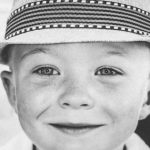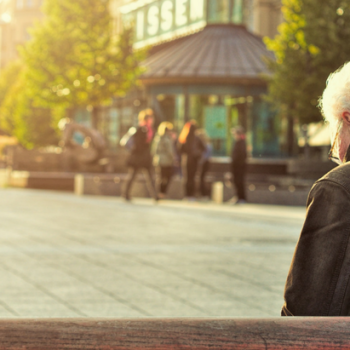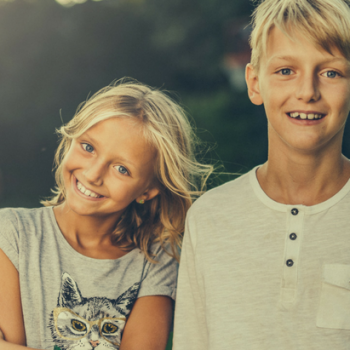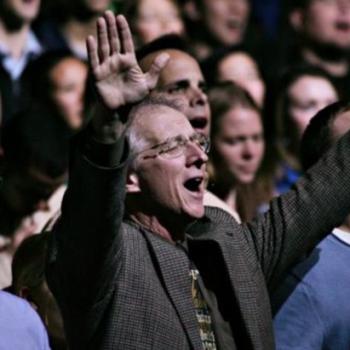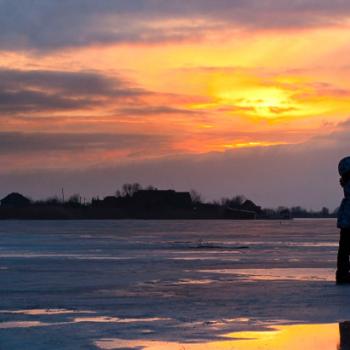Lately, I’ve been struck by the power of names.
I’ve been struck by the courage it takes to be inquisitive enough to ask a stranger their name. Struck by the difference it makes when we work hard and commit to memory the thing most important to a person: their first name. Struck by the way knowing a name changes our relationships with ourselves, with each other and with the world.
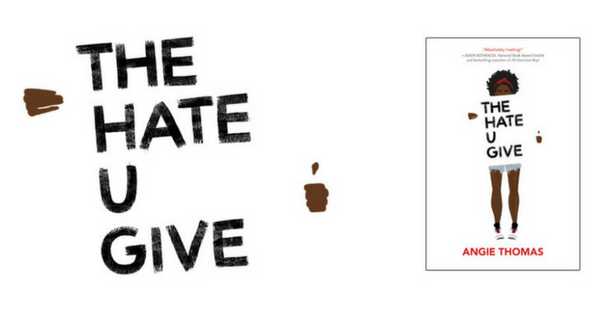
Image: Harper Collins
And I can’t help but acknowledge that part of the reminder comes from having just read The Hate U Give by Angie Thomas. The novel, which depicts a fictionalized account of the Black Lives Matter movement, was birthed in between the deaths of black teenagers Oscar Grant and Trayvon Martin. While Martin’s message comes through loud and clear, the endearment readers feel toward the characters in her novel is the loudest message of all – for it’s this message of personhood, of knowing and being changed by knowing a name, that we are changed.
Fiction meets reality throughout the novel, but especially near the end, when fourteen African Americans innocently killed are named:
“Oscar. Aiyana. Trayvon. Rekia. Michael. Eric. Tamir. John. Ezell. Sandra. Freddie. Alton. Philando.It’s also about that little boy in 1955, whom nobody recognized at first, Emmett.”
Now, I don’t know if you’re anything like me, or if the fundamentalist world you found yourself entrenched in at some point in your life was anything like mine, but for a long time I didn’t believe their names were my problem.
So, what does it mean for all of us, no matter the color of our skin, to truly step into and embrace the reality that all lives matter to God – and to acknowledge that in our broken, upside-down world, not all black lives yet matter to the rest of the human population?
Maybe it means being changed by story and entering into the story. Maybe it means examining the power and privilege some of us were born with, an advantage that afforded us the ease of letting truths like another black life lost go in one ear and out the other. And maybe it means rewriting the narratives of racial injustice and discrimination that muddied our childhoods, and starting anew with our own children.
Maybe it also means not giving up on a better ending, as Starr, the main character in The Hate U Give, realizes herself. Maybe it means holding onto hope – a hope that is somehow God’s alone, even if we have a hard time defining God in our grown-up years. For some of us, the beliefs of our youth don’t come as naturally; we can’t spout Bible verses and Christian accolades as we once did, nor should we attempt to do so now. But we can still hold onto the Hope that comes with a capital “H.” Hope that is more than a thing with feathers. Hope that really, truly believes the way things are today cannot and will not remain this way forever.
For ours is a Hope of redemption – a Hope that rewrites the wrong and makes everything right again. And this for every life, no matter the color of their skin, their gender and sexuality, their power and privilege, or lack there of.
But how do we get there?
Starr’s story, it seems, might be a lot like yours and mine: it’s one of journey. She lives in Garden Heights, a gang-infested, mostly black neighborhood, but she goes to school at an elite, private, mostly white high school across town. Hers is a disparate, compartmentalized existence – mostly because she feels like she has no choice but to live that way, caught between two completely different worlds.
But when Khalil, her best friend from childhood, is wrongfully murdered by a police officer, Starr must come to terms not only with her own existence, but also with her response to the matter.
Will she stand by and say nothing? Will she fight for the truth of Khalil, even if others label him a drug-dealing thug, even if the media portrays him completely contrary to his real existence?
Ultimately, the question asked of Starr is the question asked of every reader: will we too stand by and say nothing? Will we too fight for the lives of innocent black and brown lives, believing in the reality of the human, instead of in a hyped-up caricature of popular response?
“It won’t change if we don’t say something,” Starr comes to realize, when she decides to testify before the District Attorney with her account of the night’s events.
“Exactly,” her father responds, his single syllable response all the encouragement she needed in that moment.
I think it’s the same for us: I can’t make you read The Hate U Give, but I dare you not to be changed by the fictionalized story of Starr and Khalil.
And maybe after that you’ll find yourself absorbed in the conversation in a whole new way: as you examine your own story, as you respond to the stories present in the media, as you enter into a changed point of view when it comes to the Black Lives Matter movement.
At least, that happens to be the case for me, right now.
Cara Meredith is a writer and speaker from Seattle, Washington. She is a co-host on the Shalom in the City podcast and holds a Master’s of Theology (Fuller Seminary). She can be found on her blog, Facebook and Twitter.
Get a free download of a Christian parenting manifesto that helps us guide children into healthy spirituality + the most helpful parenting resources with progressive values.


